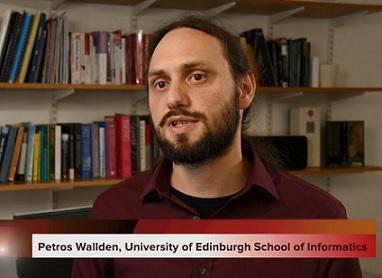How quantum physics will change our views on cyber security
In a review article for Communications of the Association for Computing Machinery Informatics researchers are looking into the impact of quantum computing and quantum technologies on cyber security.
The current boost of investment in the development of quantum software and hardware is often referred to as the second quantum revolution where we can achieve the control of quantum systems that allows for many new technological applications. Our computing and communication solutions will involve more and more quantum devices. These systems are not going to fully dominate in the near future, but there will be an extended period where hybrid systems of classical and quantum devices will coexist.

Second quantum revolution
Quantum computing presents greater computational power than classic computers. Some problems can be solved exponentially faster using quantum devices. However, the devices themselves are not performing more operations per second, but are using different algorithms altogether to solve problems. The extra speed obtained depends on the task. More research into quantum algorithms will be crucial to amplify the uses of these new computing devices.
The second quantum revolution brings new possibilities but also new risks. Researchers warn that with the development of quantum computing comes a threat to cybersecurity, as large parts of traditional cryptography are expected to break. To secure our current classical systems, we will need new protections, some of which may involve quantum technologies. These new solutions will provide higher levels of security. At the same time, security guarantees will be vital in a completely new field of quantum computing systems.
Towards quantum cyber security
Researchers don’t expect major quantum attacks to existing cyber security systems to take place within this decade. The adversaries are unlikely to get hold of large enough quantum computers required to compromise existing cryptosystems soon since we do not expect such devices to be available that soon. However, it will take years to build solutions and infrastructure so we cannot afford to delay counter-measures any further. Another reason for equipping ourselves against future attacks now is that the security can be broken retrospectively posing a threat to digital archives (from medical records to state secrets).
Quantum technologies can also be used to ensure safer future solutions. They can enhance the performance of specific cryptographic protocols. For example, "quantum key distribution" uses simple quantum technologies to achieve a task (key-expansion) with "perfect” security, while existing solutions rely on the limitation in computational power that adversaries have.
“Quantum computing and quantum technologies bring new threats and new opportunities for cyber security. Addressing the imminent threats and exploiting the opportunities will lead us to a better and safer communication and computation landscape.”
Related links
Video of Petros talking about future cyber threats
